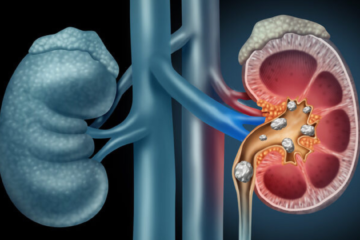
A kidney transplant is a medical marvel that offers hope and a new lease on life for individuals suffering from end-stage renal disease. It is a transformative procedure that allows recipients to regain their health and experience a renewed sense of vitality. However, the journey doesn’t end with the transplant surgery; rather, it marks the beginning of a remarkable chapter filled with challenges, triumphs, and endless possibilities. Discover the physical and psychological adjustments they must make, the support systems they rely on, and the newfound appreciation for every precious moment that comes with a second chance at life.
In this blog, we will delve into the inspiring stories of individuals who have undergone kidney transplantation and explore the profound impact it has had on their lives. From the pre-transplant preparations to the surgery itself and the lifelong commitment to post-transplant care, we will unravel the journey of resilience, gratitude, and resilience that characterizes life after a successful kidney transplant.
Preparing for the transplant
Preparing for a kidney transplant is a comprehensive process that involves medical evaluations, emotional readiness, and building a support system. The steps taken during this phase are crucial for ensuring a successful transplant and a smooth transition into life after the procedure. Let’s explore the key aspects of preparing for a kidney transplant:
- Medical Evaluations: Before undergoing a kidney transplant, potential recipients undergo a series of medical evaluations. These evaluations aim to determine their eligibility for transplantation and assess the overall health of the recipient. The medical team conducts various tests and examinations, including blood tests, imaging studies, and a thorough assessment of the recipient’s organ function. These evaluations help identify any underlying health conditions that may impact the transplant process and ensure that the recipient is physically prepared for the surgery.
- Placement on the Transplant Waiting List: Once the medical evaluations are completed, eligible candidates are placed on the transplant waiting list. The waiting time for a suitable donor can vary depending on factors such as blood type, tissue compatibility, and the availability of organs. While waiting for a transplant, it is essential for recipients to maintain regular communication with their transplant centre and update any changes in their medical condition.
- Emotional Readiness and Support: Undergoing a kidney transplant is a life-altering event, and emotional preparedness is vital for a successful transition. Recipients may experience a range of emotions, including anxiety, excitement, and uncertainty. It is essential to seek emotional support from healthcare professionals, family, friends, or support groups specializing in organ transplantation. Counselling and therapy can also help recipients navigate emotional challenges and develop coping strategies.
- Building a Support System: Having a strong support system is invaluable throughout the transplant journey. Recipients should involve their loved ones in the process, educating them about the procedure and the challenges they may face. This support system can provide emotional encouragement, help with practical matters, and serve as a source of strength during recovery.
- Lifestyle Adjustments: To optimize the chances of a successful transplant, recipients may need to make certain lifestyle adjustments. This includes adopting a healthy diet, exercising regularly, and abstaining from activities that could jeopardize their health, such as smoking or excessive alcohol consumption. Adhering to these lifestyle changes can enhance overall well-being and contribute to a successful transplant outcome.
- Financial Planning: Kidney transplantation involves significant medical costs, including pre-transplant evaluations, surgery, post-operative care, and lifelong immunosuppressive medications. Recipients should work closely with their healthcare team and insurance providers to understand the financial implications of the procedure. Exploring available resources, such as financial assistance programs or insurance coverage, can help alleviate the financial burden associated with transplantation.
Preparing for a kidney transplant is a multi-faceted process that requires physical and emotional readiness, as well as a robust support system. By undergoing medical evaluations, addressing emotional needs, and making necessary lifestyle adjustments, recipients can enhance their chances of a successful transplant.
The Transplant Surgery and Recovery
The transplant surgery and subsequent recovery period are critical phases in the kidney transplantation process. This stage involves the actual transplantation of the donor’s kidney into the recipient’s body and the subsequent care required to ensure the kidney’s successful function. Let’s explore the transplant surgery and recovery process in more detail:
- Transplant Surgery: The transplant surgery itself is a major procedure that typically requires several hours to complete. The surgical team carefully places the donor kidney into the recipient’s lower abdomen, making connections to the blood vessels and urinary tract. The new kidney takes over the function of the recipient’s failed kidneys, filtering waste products and producing urine.
During the surgery, the recipient is placed under general anaesthesia, ensuring they are asleep and pain-free throughout the procedure. The surgical team monitors vital signs and employs advanced techniques to minimize the risk of complications and optimize the success of the transplant.
- Post-Surgery Hospital Stay: Following the transplant surgery, the recipient is typically transferred to the intensive care unit (ICU) for close monitoring. The length of the hospital stay varies, but most recipients can expect to stay in the hospital for a few days to a week, depending on their individual circumstances and recovery progress.
During this time, healthcare professionals closely monitor the recipient’s vital signs, kidney function, and overall recovery. Medications, including immunosuppressants, pain management drugs, and antibiotics, are administered to support the healing process and prevent rejection of the transplanted kidney.
- Recovery and Follow-Up Care: Once the recipient is stable and their kidney function is satisfactory, they are transferred to a regular hospital room or may be discharged to continue their recovery at home. The recovery period can last several weeks or even months, depending on the individual’s progress and the extent of the surgery.
During the recovery phase, recipients will have regular follow-up appointments with their transplant team to monitor their kidney function, adjust medications, and address any concerns or complications that may arise. Blood tests and imaging studies are performed to assess the health of the transplanted kidney and ensure its optimal functioning.
- Medication Regimen: One of the most critical aspects of post-transplant care is adherence to a prescribed medication regimen, particularly immunosuppressive medications. These medications help prevent the recipient’s immune system from rejecting the transplanted kidney. It is essential to take these medications as directed and on time, even after the initial recovery period. The transplant team will provide detailed instructions regarding medication dosages, potential side effects, and monitoring protocols.
- Post-transplant Adjustments: Recipients are advised to make certain lifestyle adjustments to support their overall health and protect the transplanted kidney. These adjustments may include maintaining a balanced diet, engaging in regular exercise, and avoiding activities that could jeopardize kidney function, such as smoking or excessive alcohol consumption. Following a healthy lifestyle can help reduce the risk of complications and promote long-term success.
- Emotional Support: Recovery from a kidney transplant can be emotionally challenging for recipients. It is normal to experience a range of emotions, including gratitude, relief, and anxiety. Seeking emotional support from loved ones, support groups, or mental health professionals can provide recipients with the necessary tools to navigate the emotional aspects of the post-transplant journey.
The transplant surgery marks a significant milestone, but the recovery period is equally important in ensuring the long-term success of the transplant. By following the prescribed medication regimen, attending regular follow-up appointments, making necessary lifestyle adjustments, and seeking emotional support, recipients can optimize their recovery and embrace a healthy, fulfilling life with their new kidney.
Overcoming Post-Transplant Challenges
Life after a kidney transplant presents its own unique set of challenges for recipients. While transplant surgery offers a new lease on life, it is important to navigate the post-transplant period with diligence and care. Let’s explore some of the challenges faced by transplant recipients and strategies for overcoming them:
- Medication Management: One of the most significant challenges post-transplant is adhering to the medication regimen. Recipients are typically prescribed immunosuppressive medications to prevent rejection of the transplanted kidney. These medications must be taken consistently and as directed, often for the rest of the recipient’s life. However, they can have side effects and require careful monitoring.
To overcome this challenge, recipients should maintain open communication with their healthcare team. It is essential to understand the purpose of each medication, potential side effects, and strategies for managing them. Setting up reminders, organizing pillboxes, and involving family members or caregivers can help ensure medication adherence. Regular follow-up appointments and blood tests help monitor kidney function and adjust medications if necessary.
- Infection Prevention: Immunosuppressive medications lower the body’s immune response, making transplant recipients more susceptible to infections. Preventing infections is crucial for maintaining the health of the transplanted kidney. Recipients should adopt good hygiene practices, including frequent handwashing, avoiding crowded places during flu seasons, and staying up to date with vaccinations as per their healthcare provider’s recommendations.
It is important to promptly report any signs of infection, such as fever or unusual symptoms, to the healthcare team. They can provide guidance on managing infections and may recommend additional preventive measures, such as wearing masks in certain situations or avoiding contact with individuals who are ill.
- Rejection and Surveillance: While immunosuppressive medications help prevent rejection, there is always a risk of the body’s immune system recognizing the transplanted kidney as foreign and mounting an attack. Close monitoring is crucial to identify signs of rejection early on.
Transplant recipients are advised to attend regular follow-up appointments and undergo routine blood tests to assess kidney function and detect any signs of rejection. It is important to report any changes in urine output, blood pressure, or overall well-being to the healthcare team promptly. Education about the signs and symptoms of rejection empowers recipients to be vigilant and seek immediate medical attention if needed.
- Emotional and Psychological Well-being: The post-transplant period can bring about a mix of emotions, including gratitude, relief, anxiety, and even guilt. Adjusting to life after a transplant, managing the fear of rejection, and coping with the responsibility of caring for a transplanted organ can be challenging.
Transplant recipients may benefit from seeking support through therapy, counselling, or joining support groups specifically tailored for organ transplant recipients. These resources provide a safe space to express emotions, share experiences, and receive guidance from others who have gone through similar journeys.
Overcoming post-transplant challenges requires commitment, support, and proactive engagement. By working closely with healthcare professionals, adhering to the medication regimen, practising infection prevention strategies, seeking emotional support, making lifestyle adjustments, and addressing financial considerations, transplant recipients can navigate the post-transplant phase with resilience and lead fulfilling lives with their new kidneys.
Conclusion
In the journey of life after a kidney transplant, transplant recipients embark on a remarkable path of resilience, gratitude, and renewed possibilities. Overcoming the challenges of medication management, infection prevention, rejection surveillance, emotional well-being, lifestyle adjustments, and financial considerations, these individuals exemplify the strength of the human spirit. With the support of healthcare professionals, loved ones, and support networks, transplant recipients embrace their second chance at life with gratitude and determination. They develop a deep appreciation for the smallest moments and a profound understanding of the fragility and resilience of the human body.
Dr. Sumit Sharma is an experienced urologist, andrologist, and kidney transplant surgeon with over 20 years of clinical experience. He is the founder of the Department of Urology at multiple hospitals in Gurgaon and has established successful kidney transplant programs across the city.



